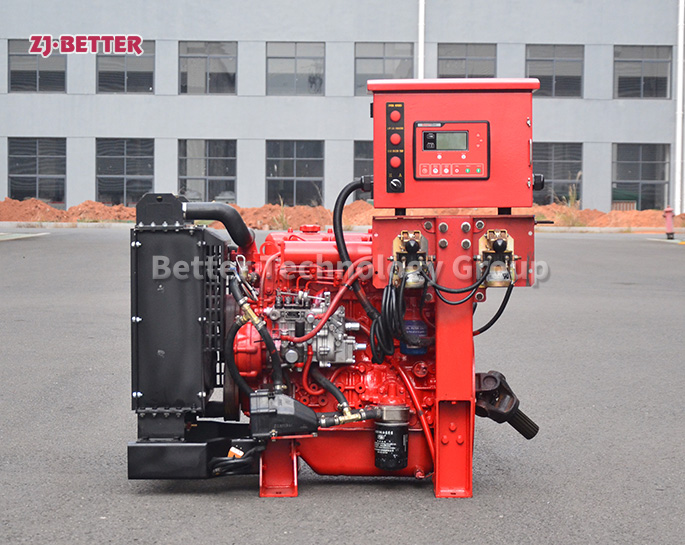What is a Diesel Engine Fire Pump and How Does It Work?
When it comes to fire protection systems, diesel engine fire pumps play a crucial role in ensuring that water is delivered at the right pressure to suppress fires efficiently. Unlike electric fire pumps, diesel engine fire pumps provide a reliable, independent power source, making them indispensable for buildings, industrial sites, and other locations where power outages could compromise fire safety.

What is a Diesel Engine Fire Pump?
A diesel engine fire pump is a type of fire pump powered by a diesel engine instead of electricity. It is designed to pump large volumes of water or foam concentrate to firefighting systems like sprinklers or hydrants. Diesel engine pumps are often used in applications where electric power is unreliable or unavailable. They are self-contained, meaning that even during a power failure, they can still function effectively to supply the necessary pressure to fight fires.
Key Components of a Diesel Engine Fire Pump
A diesel engine fire pump consists of several critical components that work together to provide water at the correct pressure and flow rate for firefighting:
- Diesel Engine: The engine powers the pump, ensuring it runs continuously when activated by a fire detection system.
- Pump: The pump itself draws water from a water source (e.g., a water tank or reservoir) and delivers it through piping to various firefighting systems.
- Fuel System: The diesel engine runs on fuel, typically stored on-site in a dedicated fuel tank.
- Control Panel: This monitors the pump’s operation, automatically starting the engine in the event of a fire and stopping it when the fire is under control.
- Exhaust and Cooling System: To keep the engine running at optimal temperatures and to expel gases, these systems are critical in preventing overheating.
How Does a Diesel Engine Fire Pump Work?
When a fire is detected, an automatic detection system triggers the diesel engine fire pump. The control panel starts the diesel engine, which in turn drives the pump to draw water from the designated water supply. The pump then pushes water through the system at high pressure, feeding sprinklers, hydrants, and other firefighting equipment.
The diesel engine is designed to start quickly, even in cold conditions, ensuring that firefighting efforts begin without delay. One of the key advantages of a diesel engine fire pump is its ability to operate independently of the electrical grid, which is especially important in case of a power outage during a fire emergency.
Why Choose a Diesel Engine Fire Pump?
- Reliability: Diesel engine pumps are highly reliable and can operate continuously without reliance on electricity.
- Self-Sufficiency: They are ideal for locations that may experience frequent power interruptions or areas without access to an electrical power supply.
- Efficiency: Diesel engines are known for their fuel efficiency, ensuring that your fire pump can operate for extended periods without frequent refueling.
Conclusion
A diesel engine fire pump is an indispensable component of any fire protection system, especially in places where electrical power is unreliable. Its ability to work independently and provide high-pressure water flow makes it a top choice for critical applications. Whether you're building a new facility or upgrading an existing system, understanding the role of diesel engine fire pumps is essential to maintaining safety and ensuring that firefighting efforts are not compromised in an emergency.

.png)
.png)

.png)


